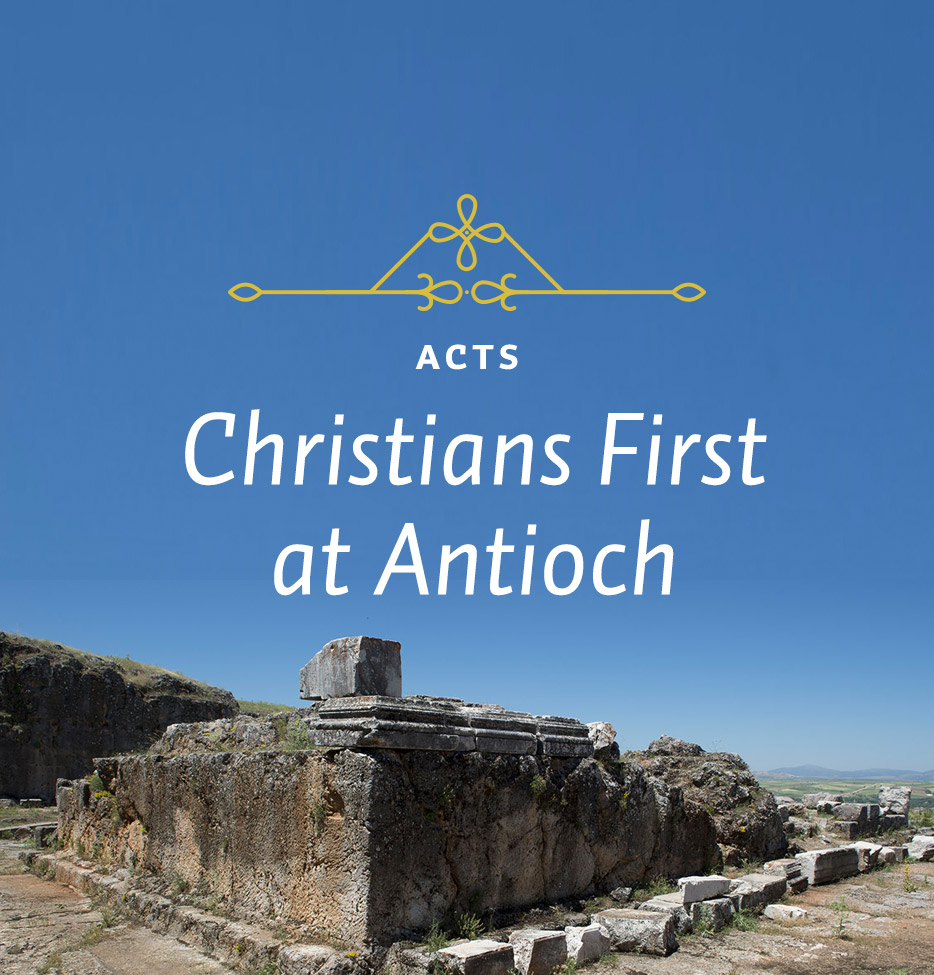In today’s study let’s continue our look at Antioch, the city from which the great missionary movement began.
2. A commercial center. Antioch was chiefly a business city. The wealth of the east flowed through Antioch on its way to Rome. The armies of Greece and Rome marched through Antioch. Antioch was sophisticated and tolerant. Yes, tolerant, because all these different peoples, each with its own background, had to live and function side by side. Antioch was somewhat like the “melting pot” of the American ideal.
3. A morally corrupt center. Even the ancients thought Antioch was corrupt. Outside the city there was a park or grove of trees called “the Grove of Apollo.” It was notorious as a location for licentious sexual indulgence.
Yet it was here in this cosmopolitan, commercial, and most corrupt city that a great church was established—a church that had a mixture of races, was grounded in the Word of God, and (because it was grounded in the Word and was anxious to obey Jesus Christ) became the first great missionary church of the New Testament.
Luke begins his account of the church at Antioch by telling how the Gospel became established there. Believers who had been scattered as a result of the persecution in connection with the killing of Stephen “traveled as far as Phoenicia [to the south], Cyprus [off the coast] and Antioch, telling the message only to Jews (v. 19). There were some of them, however, no doubt of Jewish background though perhaps with good contacts with their Gentile neighbors, “men from Cyprus and Cyrene” [in north Africa] who “went to Antioch and began to speak to Greeks also, telling them the good news about the Lord Jesus” (v. 20). We are told that “the Lord’s hand was with them, and a great number of people believed and turned to the Lord” (v. 21).
This news got back to Jerusalem. The church sent Barnabas to investigate.
Barnabas was a great man. We know something about him already, because he has already been introduced to us, no doubt in anticipation of his role in Antioch and later. At the end of chapter 4, after the wonderful paragraph describing how the Christians were so united in spirit that they shared all they had, we read that “Joseph, a Levite from Cyprus, whom the apostles called Barnabas (which means Son of Encouragement), sold a field he owned and brought the money and put it at the apostles’ feet” (Acts 4:36-37). Those two verses tell us a great deal about Barnabas.
1. His given name was Joseph, and he was a Jew. In fact he was a Levite, which means that he was a member of the priestly tribe. That was a very important thing for a Jew to have been.
2. He came from Cyprus. Cyprus was a Gentile area. So although Barnabas was a Jew, even a prominent Jew, he must have known many Gentiles and have been familiar with the racially mixed environment he was to find at Antioch.
3. He was generous. He sold a field he owned and gave the money to the apostles. In this action he stands in striking contrast to Ananias and Sapphira, whose story follows immediately after this first introduction of Barnabas in chapter 5.






